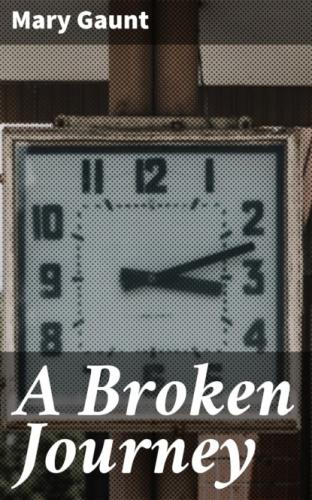Mary Gaunt
A Broken Journey
Wanderings from the Hoang-Ho to the Island of Saghalien and the Upper Reaches of the Amur River
Published by Good Press, 2019
EAN 4064066168001
Table of Contents
CHAPTER I—THE LURE OF THE UNKNOWN
CHAPTER II—TRUCULENT T'AI YUAN FU
CHAPTER III—THE FIRST SIGN OF UNREST
CHAPTER IV—A CITY UNDER THE HILLS
CHAPTER VI—BY MOUNTAIN AND RIVER
CHAPTER VIII—LAST DAYS IN CHINA
CHAPTER IX—KHARBIN AND VLADIVOSTOK
CHAPTER X—ONE OF THE WORLD'S GREAT RIVERS
CHAPTER XI—THE ENDS OF THE EARTH
CHAPTER XIII—THE UPPER REACHES OF THE AMUR
CHAPTER XIV—MOBILISING IN EASTERN SIBERIA
CHAPTER XV—ON A RUSSIAN MILITARY TRAIN
CHAPTER XVI—THE WAYS OF THE FINNS
CHAPTER XVII—CAPTURED BY GERMANS
FOREWORD
I have to thank my friend Mrs. Lang for the drastic criticism which once more has materially helped me to write this book. Other people also have I to thank, but so great was the kindness I received everywhere I can only hope each one will see in this book some token of my sincere gratitude.
Mary Gaunt.
Mary Haven, New Eltham, Kent.
A BROKEN JOURNEY
CHAPTER I—THE LURE OF THE UNKNOWN
Each time I begin a book of travel I search for the reasons that sent me awandering. Foolishness, for I ought to know by this time the wander fever was born in my blood; it is in the blood of my sister and brothers. We were brought up in an inland town in Victoria, Australia, and the years have seen us roaming all over the world. I do not think any of us has been nearer the North Pole than Petropaulovski, or to the South Pole than Cape Horn—children of a sub-tropical clime, we do not like the cold—but in many countries in between have we wandered. The sailors by virtue of their profession have had the greater opportunities, but the other five have made a very good second best of it, and always there has been among us a very understanding sympathy 'with the desire that is planted in each and all to visit the remote corners of the earth.
Anybody can go on the beaten track. It only requires money to take a railway or steamer ticket, and though we by no means despise comfort—indeed, because we know something of the difficulties that beset the traveller beyond the bounds of civilisation, we appreciate it the more highly—still there is something else beyond comfort in life. Wherein lies the call of the Unknown? To have done something that no one else has done—or only accomplished with difficulty? Where lies the charm? I cannot put it into words—only it is there, the “something calling—beyond the mountains,” the “Come and find me” of Kipling. That voice every one of the Gaunts hears, and we all sympathise when another one goes.
And that voice I heard loudly in China.
“Come and find me! Come and find me!”
The livelong day I heard it, and again and again and yet again I tried to stifle it, for you who have read my Woman in China will know that travelling there leaves much to be desired. To say it is uncomfortable is to put it in the mildest terms. Everything that I particularly dislike in life have I met travelling in China; everything that repells me; and yet, having unwisely invested $10 (about £1) in an atlas of China, the voice began to ring in my ears day and night.
I was living in an American Presbyterian mission station in the western suburb of the walled town of Pao Ting Fu, just beyond European influence, the influence of the Treaty Ports and the Legation quarter of Peking. I wanted to see something of the real China, to get material for a novel—not a novel concerning the Chinese; for I have observed that no successful novel in English deals with anybody but the British or the Americans; the other peoples come in as subordinates—and the local colour was best got on the spot. There was plenty in Pao Ting Fu, goodness knows. It had suffered severely in the Boxer trouble. In the northern suburb, just about a mile from where we lived, was a tomb, or monument rather, that had been raised to the missionaries massacred then. They have made a garden plot where those burning houses stood, they have planted trees and flowers, and set up memorial tablets in the Chinese style, and the mission has moved to the western suburb, just under the frowning walls of the town, and—is doubly strong. A God-given fervour, say the missionaries, sends them forth.'Who am I to judge? But I see that same desire to go forth in myself, that same disregard of danger, when it is not immediate—I know I should be horribly scared if it materialised—and I cannot claim for myself it is God-given, save perhaps that all our desires are God-given.
So there in the comfortable mission station I studied the local colour, corrected my last
